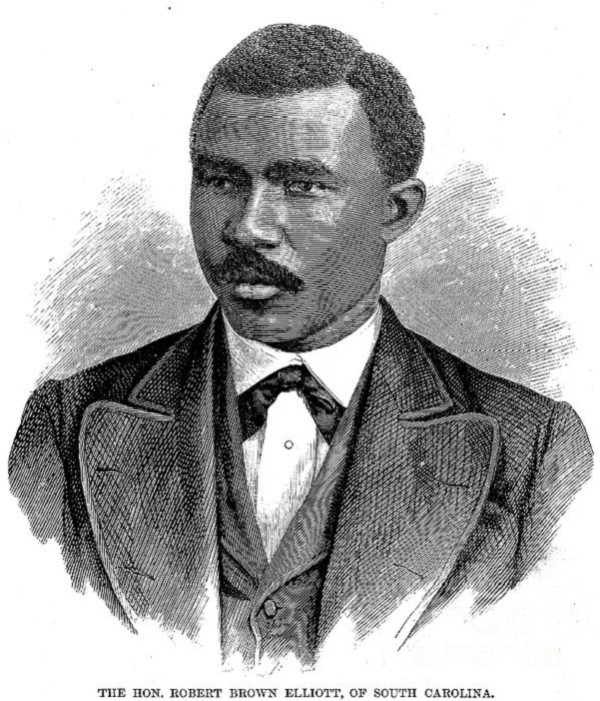
Robert Brown Elliott
Born in 1842 in Liverpool, England to West Indian parents, Elliott served in the British Navy and arrived in Boston on a warship in 1867.
He lived in Charleston, South Carolina and was an associate editor for the South Carolina Leader, a freedmen’s newspaper owned by future Representative Richard H. Cain.
Elliott was smart, gifted and well-educated. He had great oratory skills with which he hooked the attention of his audience. He was instrumental in the passing of two civil rights bills during his two-tenure in Congress.
His loyalty to the South Carolina Republican Party made him resign his seat in the U.S. House of Representatives to serve the state government in Columbia.
“Elliott’s classical education, photographic memory, and obsession with politics impressed contemporary observers.
“He knew the political condition of every nook and corner throughout the state,” Elliott’s law partner Daniel Augustus Straker commented.
“[Elliott] knew every important person in every county, town or village and the history of the entire state as it related to politics.”
He was nominated in October 1870 by Republicans in South Carolina congressional district. He faced Union Reform Party candidate John E. Bacon, the son of a prominent, aristocratic, low country family. The election was heated but Elliott won by 60 percent of the votes and was sworn into office on March4, 1871.
He was described as the first “genuine African” in Congress because his predecessors were mulattos, Joseph Rainey and Jefferson Long. “Elliott embodied the new political opportunities—and southern white apprehensions—ushered in by emancipation.
“I shall never forget [my first day in Congress],” Elliott later recalled. “I found myself the center of attraction. Everything was still.”
He had a rather radical approach to politics than his other Black counterparts. He was on the Education and Labor committee during both terms.









